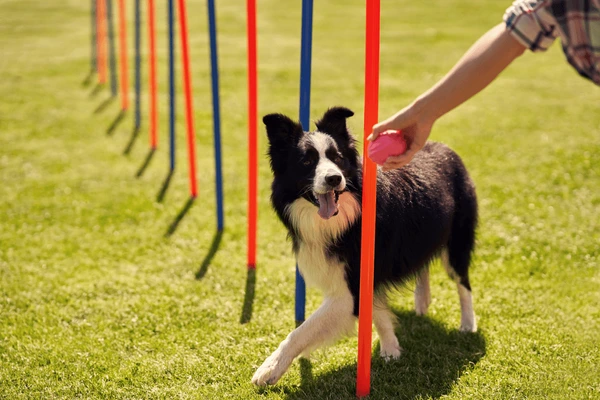The Power of Routine in Effective Dog Training

Every successful dog owner knows that consistency is key, but few realize just how powerful a structured routine can be in shaping a well-behaved, confident pet. Establishing daily habits isn’t just about discipline—it’s about communication, predictability, and trust. Dogs thrive on routine because it provides a sense of security, helping them understand what’s expected and when.
Why Routine Matters
Dogs are creatures of habit. They feel most comfortable when life follows a predictable pattern. From feeding times to walks and rest periods, structure allows them to anticipate what comes next. This predictability reduces anxiety and creates a calmer environment for both dog and owner.
Without a routine, dogs can become confused or anxious. Unpredictable schedules make it harder for them to learn and retain behaviors, as they can’t connect actions with outcomes consistently. When daily patterns are established, training becomes smoother and more effective.
How Routine Strengthens Learning
When a dog learns commands in a familiar setting and at regular times, it’s easier for them to focus. Repetition in training sessions helps reinforce what they’ve learned. For instance, if you practice “sit” every morning before a walk, your dog will start anticipating that behavior as part of the pre-walk ritual.
Training during consistent time blocks—like short sessions in the morning and evening—helps build mental discipline. Dogs start to associate certain times of day with learning, play, and rest, which reduces overexcitement and distraction.
The Role of Consistency in Behavior
Consistency doesn’t just apply to timing—it also extends to tone, body language, and expectations. If a dog is allowed on the couch one day but scolded for it the next, it sends mixed messages. Similarly, using different words for the same command (“come here” vs. “come”) can lead to confusion.
To maintain consistency:
-
Use the same commands for each behavior.
-
Keep your tone calm but firm.
-
Reinforce good behavior immediately.
-
Make sure everyone in the household follows the same rules.
When dogs receive predictable feedback, they learn faster and become more responsive.
Incorporating Routine Into Everyday Life
Establishing a routine doesn’t require strict schedules or timers—it’s about rhythm. Start with the essentials: feeding, walking, playtime, and rest. Then, layer in training moments. For example:
-
Morning: A short obedience session before breakfast.
-
Afternoon: A calm walk to reinforce leash manners.
-
Evening: Playtime or puzzle games to stimulate the mind.
Consistency in these daily activities builds stability. Over time, your dog will automatically follow patterns that support obedience and calmness.
Balancing Flexibility and Structure
While routine is important, it’s equally vital to maintain some flexibility. Life changes—schedules shift, weather interrupts walks, or travel alters daily patterns. The goal is to keep your dog adaptable within a familiar framework.
You can achieve this by introducing slight variations—different walking routes, new tricks, or fresh games—while maintaining predictable timing. This balance keeps training effective without making your dog overly dependent on strict schedules.
The Emotional Benefits of Routine
Routine training isn’t only about obedience—it’s also about emotional well-being. Dogs who know what to expect feel more secure, leading to better focus, less barking, and fewer behavioral issues.
A structured day helps channel energy into positive activities, reducing destructive behavior like chewing or digging. It also deepens the bond between dog and owner. When your dog knows that each day brings consistent attention, exercise, and affection, their confidence grows.
Using Positive Reinforcement Within a Routine
Routine provides the perfect foundation for positive reinforcement training. Rewarding desired behaviors consistently—within the same daily structure—helps your dog make connections faster.
For example, if your dog sits calmly before meals and receives praise or a treat each time, the action becomes ingrained. Over time, they’ll exhibit that behavior naturally, even without rewards.
Remember that reinforcement doesn’t always mean treats. Dogs respond just as strongly to affection, verbal praise, and playtime. Varying the type of reward keeps training interesting while maintaining the same routine.
Training Challenges and How to Overcome Them
Even with structure, training isn’t always smooth. Some dogs may resist routines initially, especially if they’ve been raised without consistency. In such cases, patience is crucial. Start small—add structure gradually instead of overhauling everything at once.
If your dog becomes distracted, shorten sessions and use high-value rewards to regain attention. Avoid punishment—it damages trust and can make your pet fearful. Instead, redirect energy toward positive actions and reward progress.
Many owners who begin dog training Clayton NC programs discover that structured routines help solve common behavior issues, from excessive barking to poor leash manners. The predictability makes learning more natural and less stressful for dogs of all ages.
Building a Lifelong Partnership
Routine does more than shape obedience—it builds a long-term bond based on understanding. When your dog knows what to expect from you, they relax, trust more, and engage willingly. You become a reliable presence, not just a trainer.
Over time, this structure translates into everyday life. Dogs trained through consistent routines are calmer during vet visits, better behaved in public, and easier to handle in new environments. They view their owners as leaders, not through dominance, but through trust and reliability.
Final Thoughts
In the end, training isn’t about perfection—it’s about progress and connection. A solid routine transforms chaos into cooperation, helping dogs feel grounded and secure. It builds habits that last a lifetime and fosters communication that goes beyond words.
So, start small. Set daily times for meals, walks, and learning moments. Stay consistent, patient, and kind. The effort you put into creating structure today will reward you with a loyal, balanced, and happy companion tomorrow.
- AI
- Vitamins
- Health
- Admin/office jobs
- News
- Art
- Causes
- Crafts
- Dance
- Drinks
- Film
- Fitness
- Food
- Jogos
- Gardening
- Health
- Início
- Literature
- Music
- Networking
- Outro
- Party
- Religion
- Shopping
- Sports
- Theater
- Wellness


